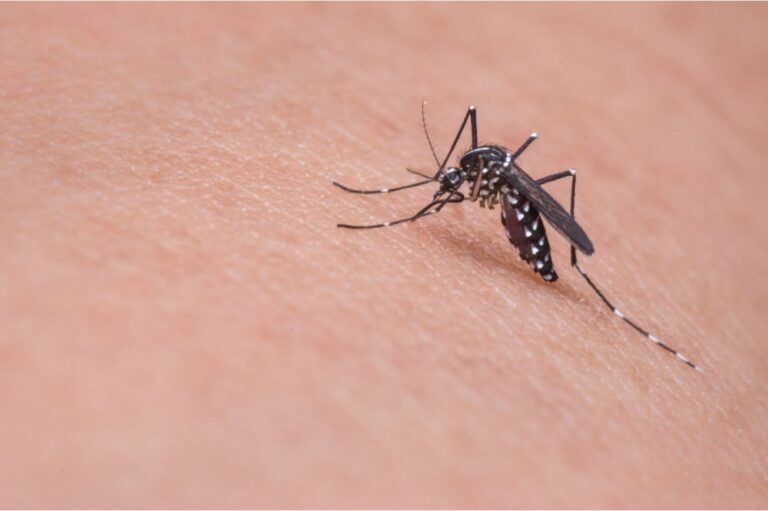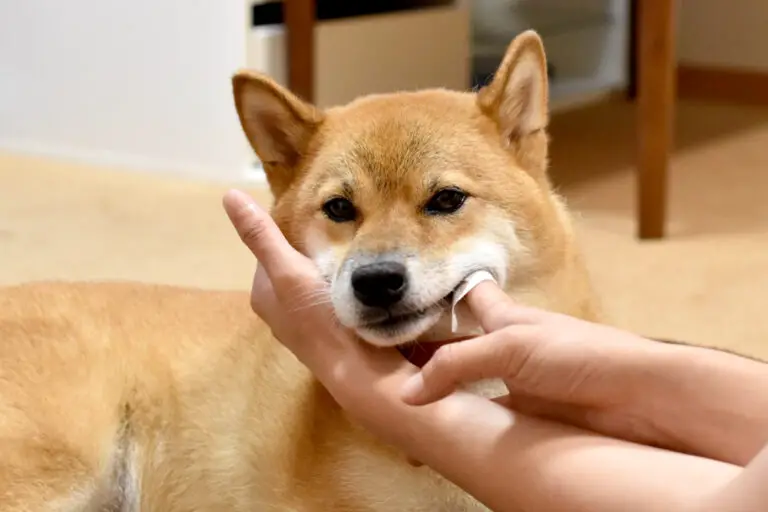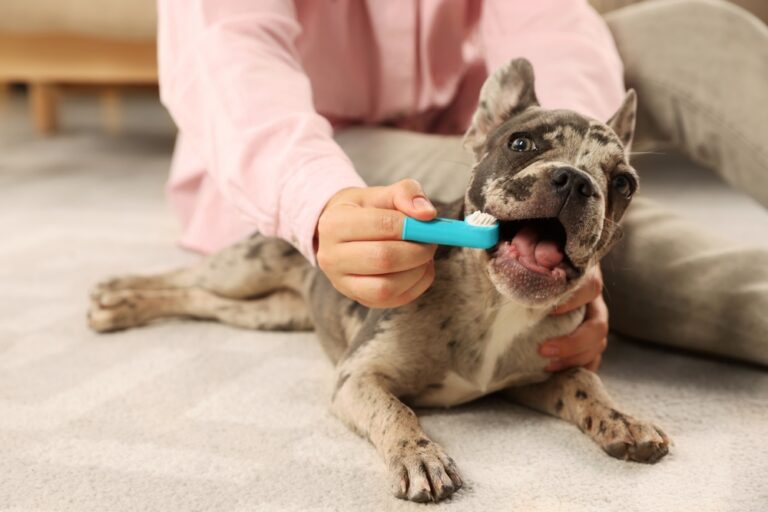If you’re a new kitten owner, you may be wondering what to expect as your furry friend grows up. One of the milestones that kittens go through is losing their baby teeth. Like human babies, kittens have a set of deciduous teeth that they will eventually lose, making way for their permanent teeth. But how do kittens act when losing teeth?
As your kitten’s baby teeth start to fall out, you may notice some changes in their behavior. They may be more irritable or have a decreased appetite due to discomfort in their mouth. You may also notice that they start chewing on things more than usual, as this can help alleviate the discomfort of teething.
It’s important to keep an eye on your kitten during this time and make sure they’re still eating and drinking enough. You can also provide them with appropriate chew toys or treats to help soothe their sore gums. With proper care and attention, your kitten will soon have a full set of adult teeth and be back to their playful self.
Understanding Kitten Teething Process
If you’re a new kitten owner, you may be wondering what to expect when your furry friend starts losing their baby teeth. Understanding the kitten teething process can help you prepare for this natural and necessary stage of your kitten’s development.
Teething Timeline
Kittens typically start teething at around 3 to 4 months old. The first teeth to appear are the incisors in the front of the mouth, followed by the canines and premolars. By the time your kitten is 6 months old, they should have all of their adult teeth.
The process of losing baby teeth and growing adult teeth is usually painless for kittens, but it can cause some discomfort. Your kitten may chew on toys or other objects to help alleviate the discomfort.
Signs of Teething
If you’re not sure whether your kitten is teething, there are a few signs to look out for. These include:
- Decreased appetite: Kitten teething can be painful, so your kitten may not want to eat hard kitten food.
- Excessive chewing: Your kitten may chew on toys or other objects to help alleviate the discomfort.
- Drooling: Some kittens may drool more than usual during the teething process.
- Bleeding gums: You may notice some bleeding around your kitten’s gums as their baby teeth fall out and their adult teeth come in.
If you notice any of these signs, don’t worry – they’re all normal parts of the kitten teething process. However, if you’re concerned about your kitten’s health or behavior, it’s always a good idea to consult with your veterinarian.
Overall, understanding the kitten teething process can help you provide the best possible care for your furry friend during this important stage of their development. With a little patience and TLC, your kitten will soon have a healthy set of adult teeth.
Kitten Behavior During Teething
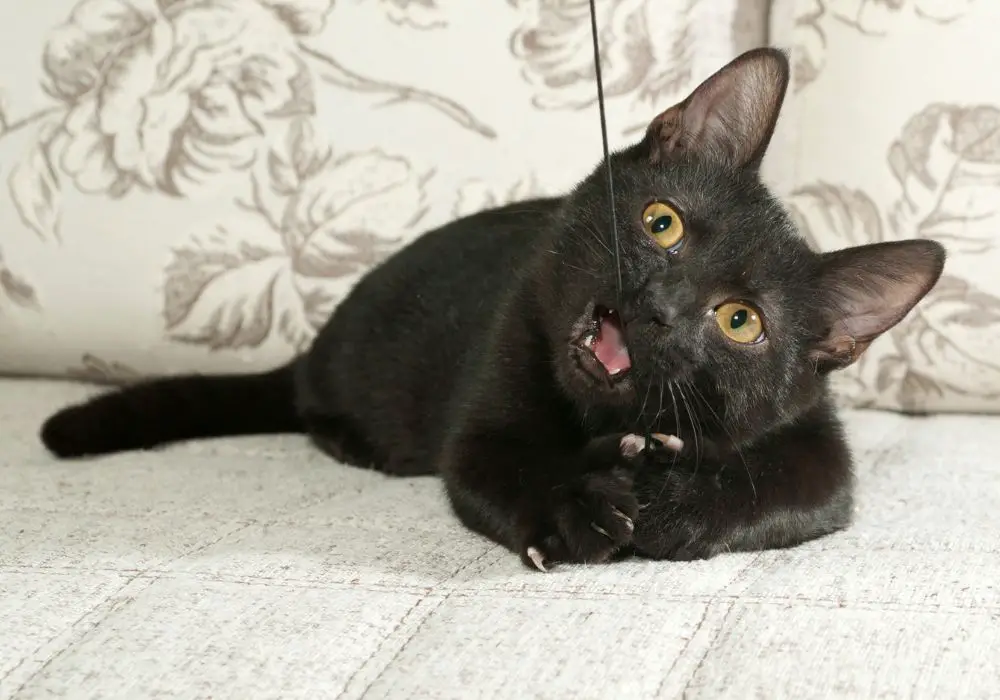
When your kitten is teething, they may exhibit some unusual behaviors. Here are a few things to look out for:
Increased Chewing
As your kitten’s adult teeth begin to emerge, they may experience discomfort and pain. To alleviate this discomfort, your kitten may begin to chew on anything they can get their paws on. This can include furniture, shoes, and even your fingers. To prevent your kitten from damaging your belongings, provide them with plenty of chew toys. You can also try freezing a damp washcloth for them to chew on, as the cold can help soothe their sore gums.
Drooling
Another common behavior during kitten teething is increased drooling. This is because your kitten’s mouth is producing more saliva than usual. While this can be messy, it’s nothing to worry about. Just be sure to keep your kitten’s face clean and dry to prevent any skin irritation.
Loss of Appetite
Kitten teething can be painful, and your kitten may experience a loss of appetite as a result. If you notice that your kitten is eating less than usual, try offering them softer foods. Wet food or softened dry food can be easier for them to eat while their teeth are coming in. You can also try warming up their food slightly to make it more appealing.
Overall, it’s important to be patient and understanding during your kitten’s teething process. With a little extra care and attention, your kitten will soon have a full set of healthy adult teeth.
Caring for a Teething Kitten
As your kitten grows, they will begin to lose their baby teeth and develop adult teeth. This process, known as teething, can be uncomfortable and painful for your furry friend. Here are some tips to help you care for your teething kitten:
Providing Safe Chew Toys
Kittens naturally want to chew on things when they are teething. Providing them with safe chew toys can help satisfy their urge to chew and alleviate discomfort. Look for toys that are specifically designed for teething kittens and are made of soft, flexible materials that won’t harm their teeth or gums. Some good options include:
- Soft rubber toys
- Fabric toys
- Kitten-specific chew toys
Avoid giving your kitten hard objects to chew on, such as bones or hard plastic toys, as these can damage their teeth and gums.
Dental Check-Ups
Regular dental check-ups are important for all cats, but especially for teething kittens. During a check-up, your veterinarian can examine your kitten’s teeth and gums to ensure that everything is developing properly. They can also identify any potential issues early on and provide treatment before they become more serious.
In addition to regular check-ups, you can also help maintain your kitten’s dental health by brushing their teeth regularly. Use a soft-bristled toothbrush and a toothpaste made specifically for cats. Start slowly and be gentle, gradually increasing the amount of time you spend brushing as your kitten becomes more comfortable with the process.
By providing your teething kitten with safe chew toys and regular dental check-ups, you can help alleviate discomfort and promote healthy dental development.
When to Seek Veterinary Help
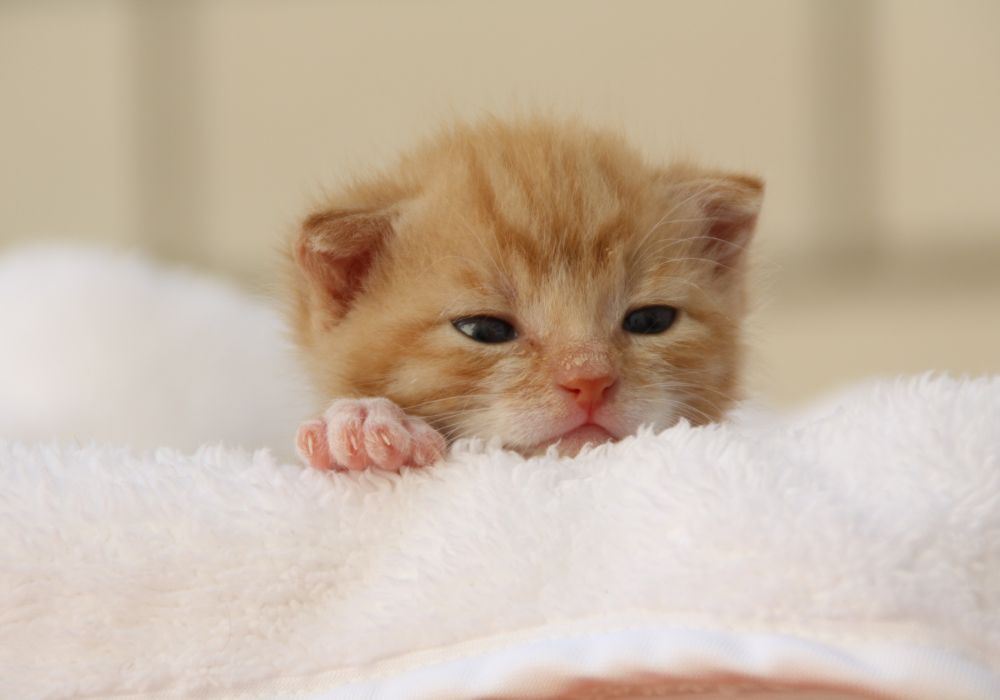
As your kitten loses their baby teeth, you may notice some discomfort and changes in behavior. However, in some cases, these changes can be a sign of a more serious issue. Here are some signs that you should seek veterinary help:
Persistent Loss of Appetite
If your kitten is not eating or drinking for an extended period of time, it may be a sign of a problem. Losing baby teeth can make eating uncomfortable, but this should not last for more than a few days. If your kitten is not eating or drinking for longer than that, it’s best to seek veterinary help.
Excessive Drooling
Some drooling is normal during the teething process, but excessive drooling can be a sign of a problem. If your kitten is drooling to the point where their fur is constantly wet or they are having difficulty swallowing, it’s time to see a veterinarian.
Unusual Aggression
Kittens can be playful and sometimes even a little rough, but if your kitten is displaying unusual aggression, it could be a sign of pain or discomfort. If your kitten is lashing out, hiding, or seems to be in pain, it’s important to seek veterinary help.
In any of these cases, it’s best to err on the side of caution and get your kitten checked out by a veterinarian. They can help determine if there is a problem and provide treatment if necessary. Remember, it’s always better to be safe than sorry when it comes to your kitten’s health.
Frequently Asked Questions
How can I help my kitten when they’re teething?
Teething can be a painful and uncomfortable experience for kittens. You can help ease their discomfort by providing them with soft and chewy toys to play with. You can also offer them cold and wet treats, such as frozen fruits or vegetables, to help soothe their gums. Additionally, you should make sure to keep their teeth and gums clean by regularly brushing their teeth and providing them with dental treats.
At what age do kittens typically start losing their baby teeth?
Kittens typically start losing their baby teeth at around 3 to 4 months of age. This process usually continues until they are around 6 months old, at which point they should have all of their adult teeth.
What happens when a kitten’s tooth falls out?
When a kitten’s tooth falls out, it is usually replaced by an adult tooth. The adult tooth will gradually push the baby tooth out of its socket until it falls out. This process can cause some discomfort for the kitten, but it is a normal part of their development.
What’s the difference between kitten teeth and adult cat teeth?
Kitten teeth are smaller and sharper than adult cat teeth. They are also more prone to falling out as the kitten’s adult teeth begin to grow in. Adult cat teeth are larger and more durable, and they are better suited for biting and chewing.
What are some good teething toys for kittens?
Soft and chewy toys are great for kittens who are teething. Look for toys that are made from rubber or silicone, as these materials are gentle on their teeth and gums. You can also try offering them toys that are specifically designed for teething kittens, such as chew sticks or teething rings.
Do kittens experience any discomfort or loss of appetite while teething?
Yes, kittens can experience some discomfort and loss of appetite while they are teething. This is because their gums can become sore and swollen, making it difficult for them to eat. However, these symptoms should only last for a short period of time, and you can help ease their discomfort by providing them with soft and chewy foods. If you notice that your kitten is experiencing prolonged discomfort or loss of appetite, you should consult with your veterinarian.

